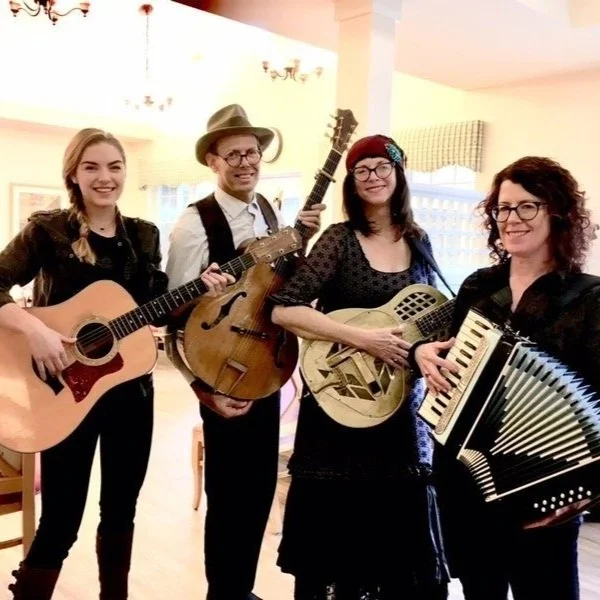Songwriting Works’ earlier National Endowment for the Arts project, Life’s A Song, engaged more than 200 rural Northwest Washington state elders and their families in composing songs in a wide range of styles. Give a listen here.
Singer-songwriters Jessie Ritter (FL), Hogan and Moss (TX), Krista Detor (IN), Don Strong (MN) and Sally Rogers (CT) trained as Songwriting Works’ facilitators with SW’s Judith-Kate Friedman (WA) and learned to blend the SW method with principles of Vital Involvement, as taught by Helen Q. Kivnick of Arts, Wellness and Vital Involvement in Aging, (the organization which also hosted the research project).
After training in Port Townsend, WA, the songwriters brought a series of songwriting workshops to their home regions, and collaborated with elders who lived in senior housing communities. The participants immersed in a sequence of music-making activities, leading to their collectively composing and performing their own original songs.
This National Endowment for the Arts ARTWORKS: RESEARCH study was conducted by LinChiat Chang, PhD in collaboration with Arts, Wellness and Vital Involvement in Aging and AHEPA housing’s Linda Duncan Davis and Betty Montgomery, with Helen Q. Kivnick and Judith-Kate Friedman of Songwriting Works.
Research results showed significantly stronger sense of community engagement at senior housing intervention sites than at comparable control sites (e.g. the building next door) after 3 months of music sessions.
At these sites, music participants were significantly more likely to report that people in the community help each other out, there are people one could count on in the community, people in the community can be trusted, and that the community is close-knit.
In short, intervention site participants showed significant uplifts in their perceptions of community trust and engagement, while control site residents showed no significant change in perceptions.
In addition, in sites hosting the AWVIA intervention music program, even non-participants experienced improvement after three months.
Regarding emotional well-being,
at the intervention sites, music participants–both the groups over age 75, and under age 75–reported they had less hopelessness–less frequency of hopeless feelings and a significant uplift in hope–than did the control group (those who did not participate) at post-intervention. At base-line, both groups had felt the same frequency of hopeless feelings.
Participants age 75 or older felt angry less often, felt less anxious or nervous, and reported feeling less worthlesss after participation in music sessions.
Regarding physical health:
When self-assessing one’s own age those in the participant group stayed relatively steady. In contrast, the control group, especially those over age 75, felt they had grown older over the 4 months of the study.
As for pain: Those 75 and older, in the control group which did not get to participate, reported more severe chronic pain at post-intervention than did the 75+ age group who participated in the music programs.
Community:
Those residing at intervention sites reported better sense of community in May 2018 compared to January 2018, regardless of whether they had attended the music sessions.
Those 75 or older (and not the younger group) valued creative self-expression more at post-intervention than at pre-intervention, and valued connections with others and helping others more at post- intervention than at pre-intervention.


